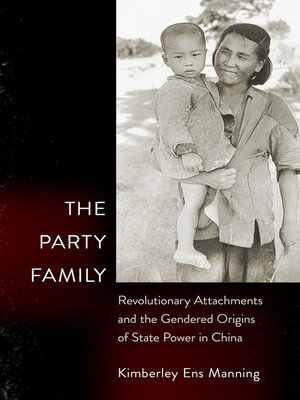The Party Family
ebook ∣ Revolutionary Attachments and the Gendered Origins of State Power in China
By Kimberley Ens Manning

Sign up to save your library
With an OverDrive account, you can save your favorite libraries for at-a-glance information about availability. Find out more about OverDrive accounts.
Find this title in Libby, the library reading app by OverDrive.



Search for a digital library with this title
Title found at these libraries:
| Library Name | Distance |
|---|---|
| Loading... |
Co-winner of the Canadian Political Science Association Prize in Comparative Politics of the Canadian Political Science Association
The Party Family explores the formation and consolidation of the state in revolutionary China through the crucial role that social ties—specifically family ties—played in the state's capacity to respond to crisis before and after the foundation of the People's Republic of China. Central to these ties, Kimberley Ens Manning finds, were women as both the subjects and leaders of reform. Drawing on interviews with 163 participants in the provinces of Henan and Jiangsu, as well as government documents and elite memoirs, biographies, speeches, and reports, Manning offers a new theoretical lens—attachment politics—to underscore how family and ideology intertwined to create an important building block of state capacity and governance.
As The Party Family details, infant mortality in China dropped by more than half within a decade of the PRC's foundation, a policy achievement produced to a large extent through the personal and family ties of the maternalist policy coalition that led the reform movement. However, these achievements were undermined or reversed in the complex policy struggles over the family during Mao's Great Leap Forward (1958–60).







